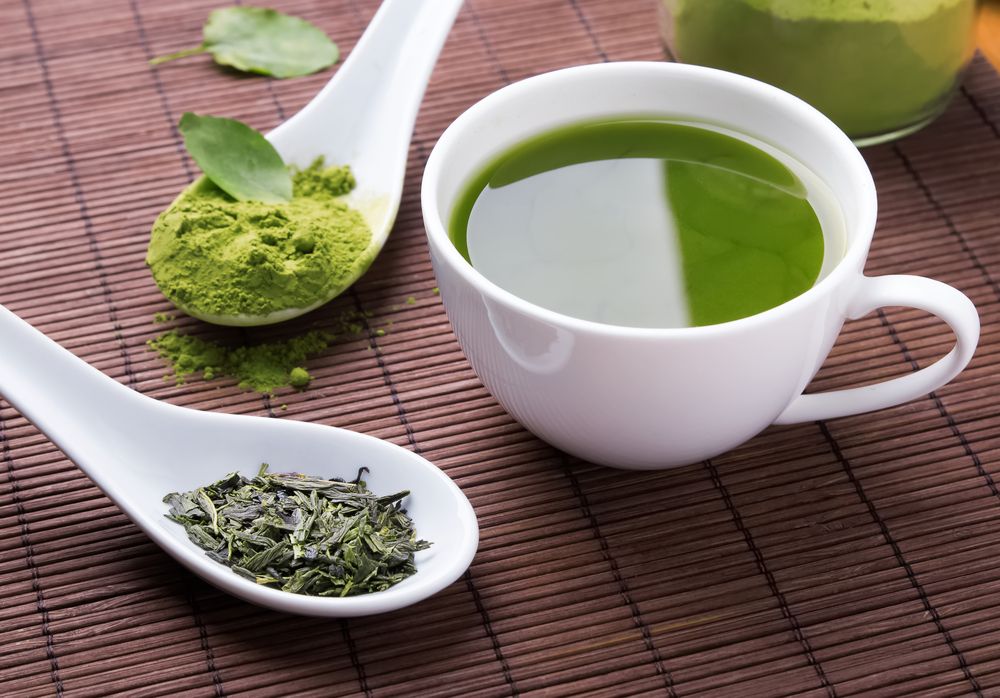Tea, a globally beloved beverage, comes in various forms like green, black, and oolong, all originating from the Camellia sinensis plant. In the production of green tea, the leaves are quickly steamed to halt fermentation, preserving their green color.
For thousands of years, Eastern medicine has praised green tea for its health advantages. Contemporary research now supports these claims, highlighting green tea's multiple health benefits. These include reducing body fat and blood sugar levels, as well as enhancing brain health.
What Distinguishes Matcha Green Tea from Regular Green Tea?
Matcha, now a trendy ingredient in lattes, baked goods, ice cream, and as a standalone drink, has a history stretching back thousands of years. Despite both being forms of green tea, matcha differs significantly in its cultivation and production processes.
Both matcha and regular green tea originate from the same plant. However, matcha's cultivation involves shading the plants from direct sunlight, reducing oxidation and boosting antioxidant levels in the leaves. The final product is a fine powder created from ground tea leaves.
This method of producing matcha, where the leaves are fully pulverized, leads to a more concentrated form than regular green tea. As a result, matcha contains a higher caffeine content compared to standard green tea.
8 Benefits of Drinking Green Tea
1) Green Tea is Beneficial for Skin Health
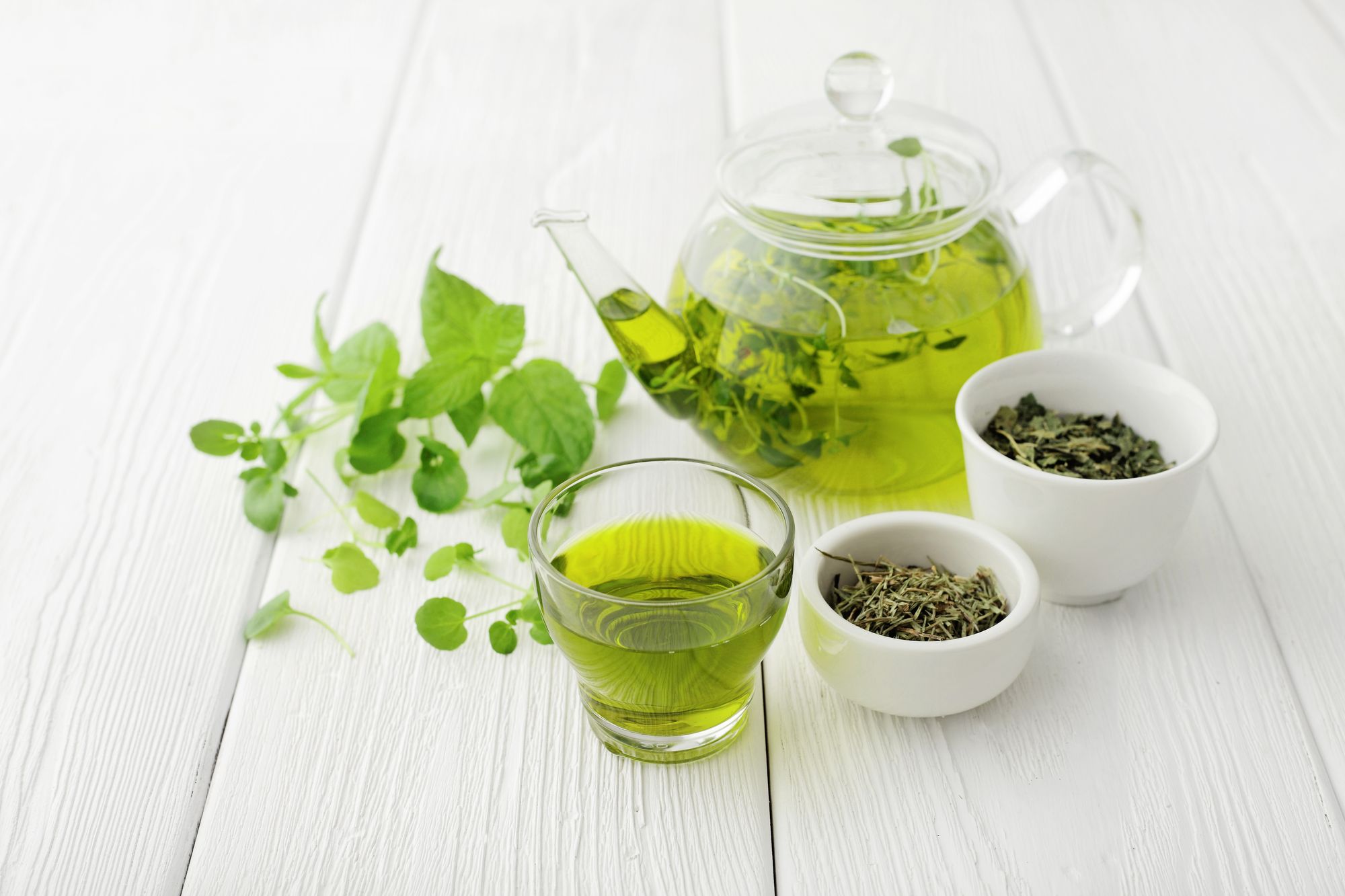
A 2023 study revealed that polyphenols in green tea might offer protection against UVB light-induced skin damage, potentially guarding against melanoma and nonmelanoma skin cancers. These protective effects were noted with both topical application and oral consumption of green tea.
This finding builds upon earlier research, such as a 2012 report, which indicated that green tea supplementation could assist in managing skin conditions like acne, rosacea, and other related issues.
2) The Risk of Getting Some Cancers is Lowered by Drinking Green Tea
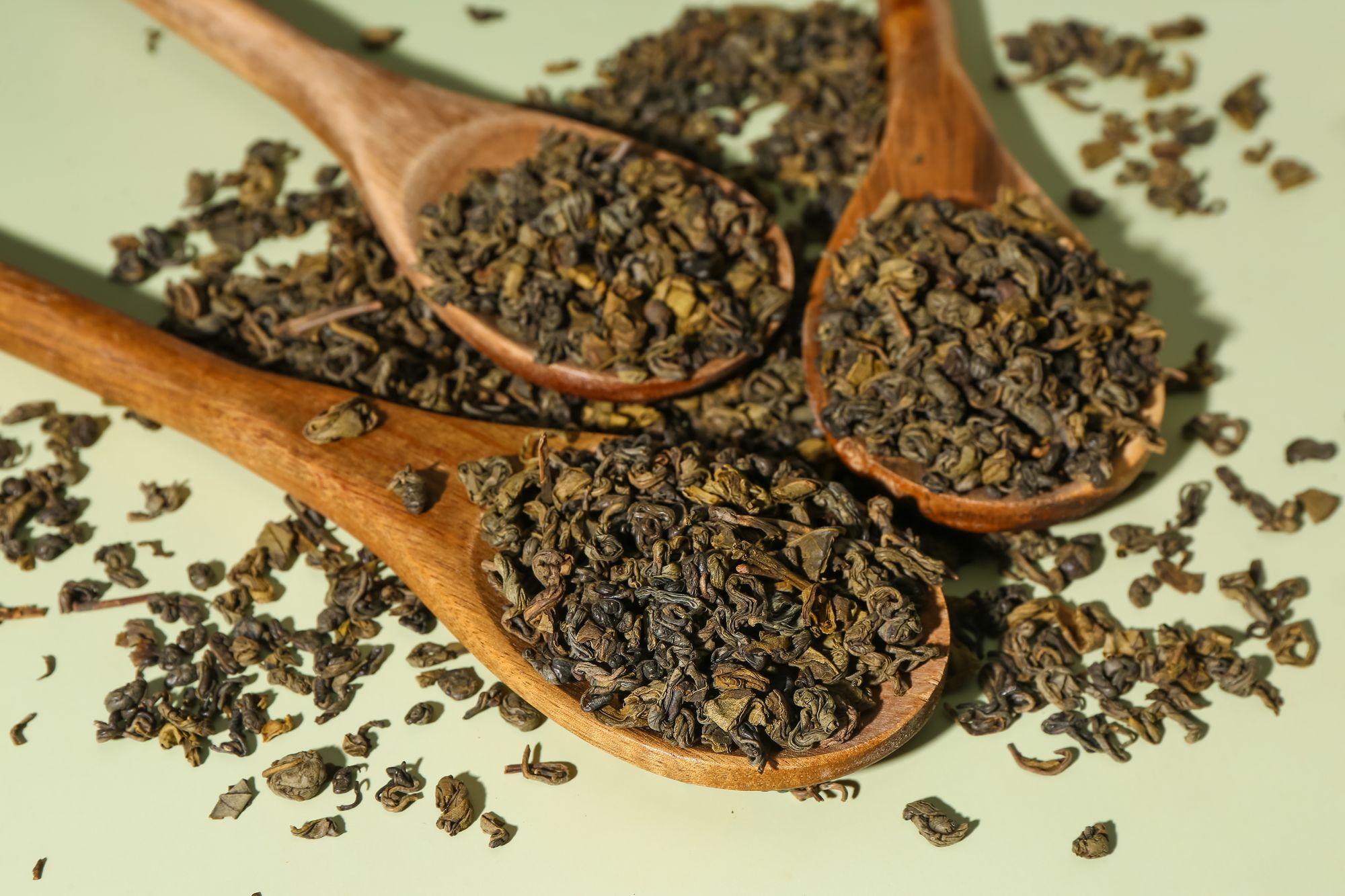
Green tea is widely recognized for its anti-cancer properties, evidenced by over 5,000 studies, including human clinical trials, population-based research, and laboratory analyses. A substantial number of these studies highlight that the polyphenols and other bioactive compounds in green tea could aid in preventing various types of cancer, such as breast, colorectal, liver, ovarian, prostate, oral, and skin cancer.
Katherine Brooking MS, RD, a registered dietitian based in New York, explains that both green and black teas are associated with cancer prevention. She points out that preliminary clinical studies have shown that tea polyphenols, especially epigallocatechin gallate (EGCG), may be crucial in cancer prevention. Researchers also believe these polyphenols can destroy cancerous cells and safeguard healthy cells from carcinogenic threats, as Brooking notes.
3) Green Tea Benefits Brain Health
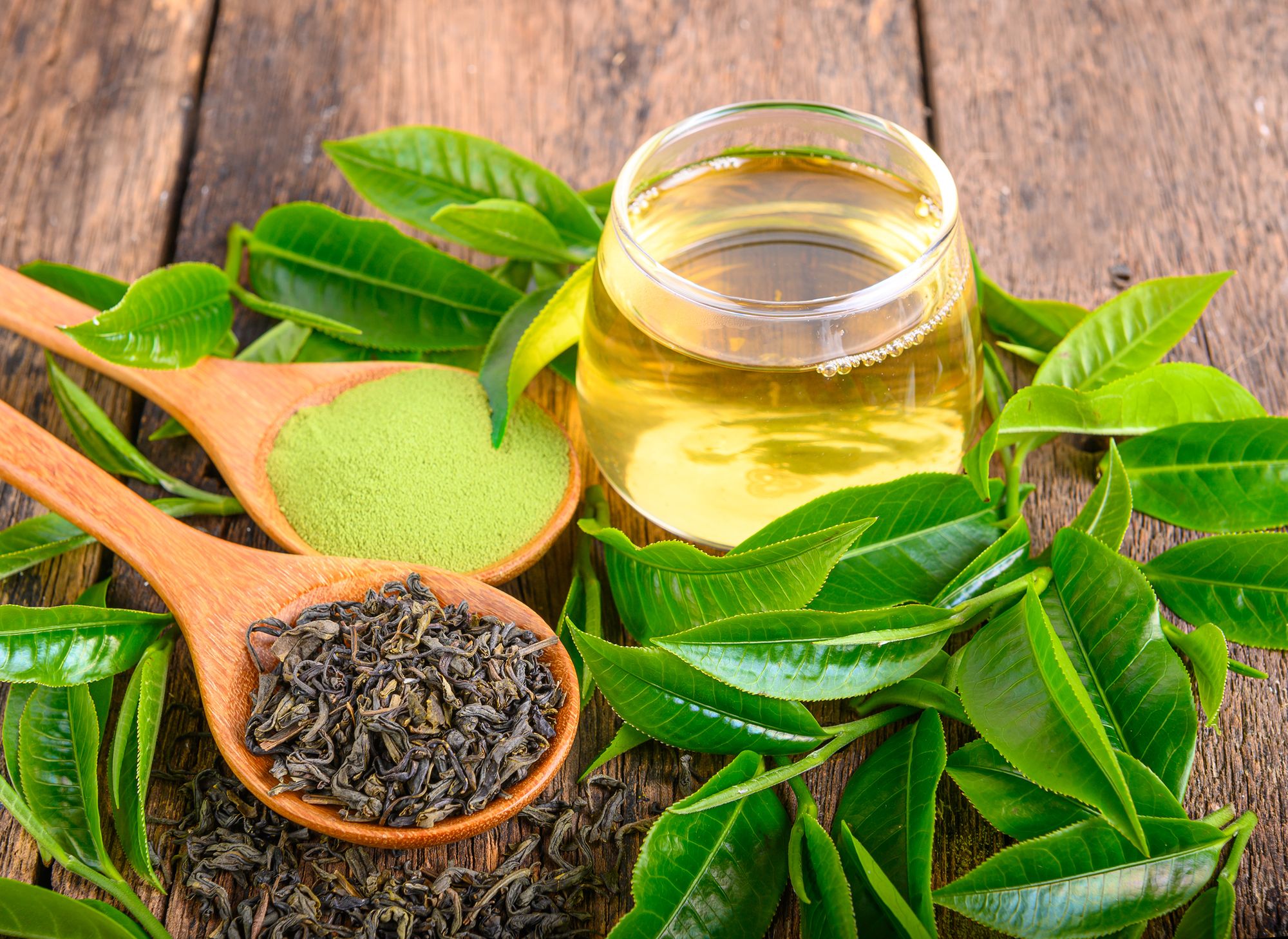
Consider incorporating green tea into your diet as a strategy to maintain cognitive sharpness with age. A randomized, double-blind human clinical trial featured in the Journal of Medicinal Food demonstrated that participants consuming daily supplements with green tea extract and L-theanine, derived from tea, showed improvements in mild cognitive impairments. They experienced enhanced attention and self-reported alertness, with memory improvement observed post-tea consumption compared to a placebo.
Furthermore, a study published in Frontiers in Aging Neuroscience revealed that green tea improved memory and executive function in older adults. It was also found to aid in reducing oxidative stress.
4) Green Tea Helps Prevent Type 2 Diabetes
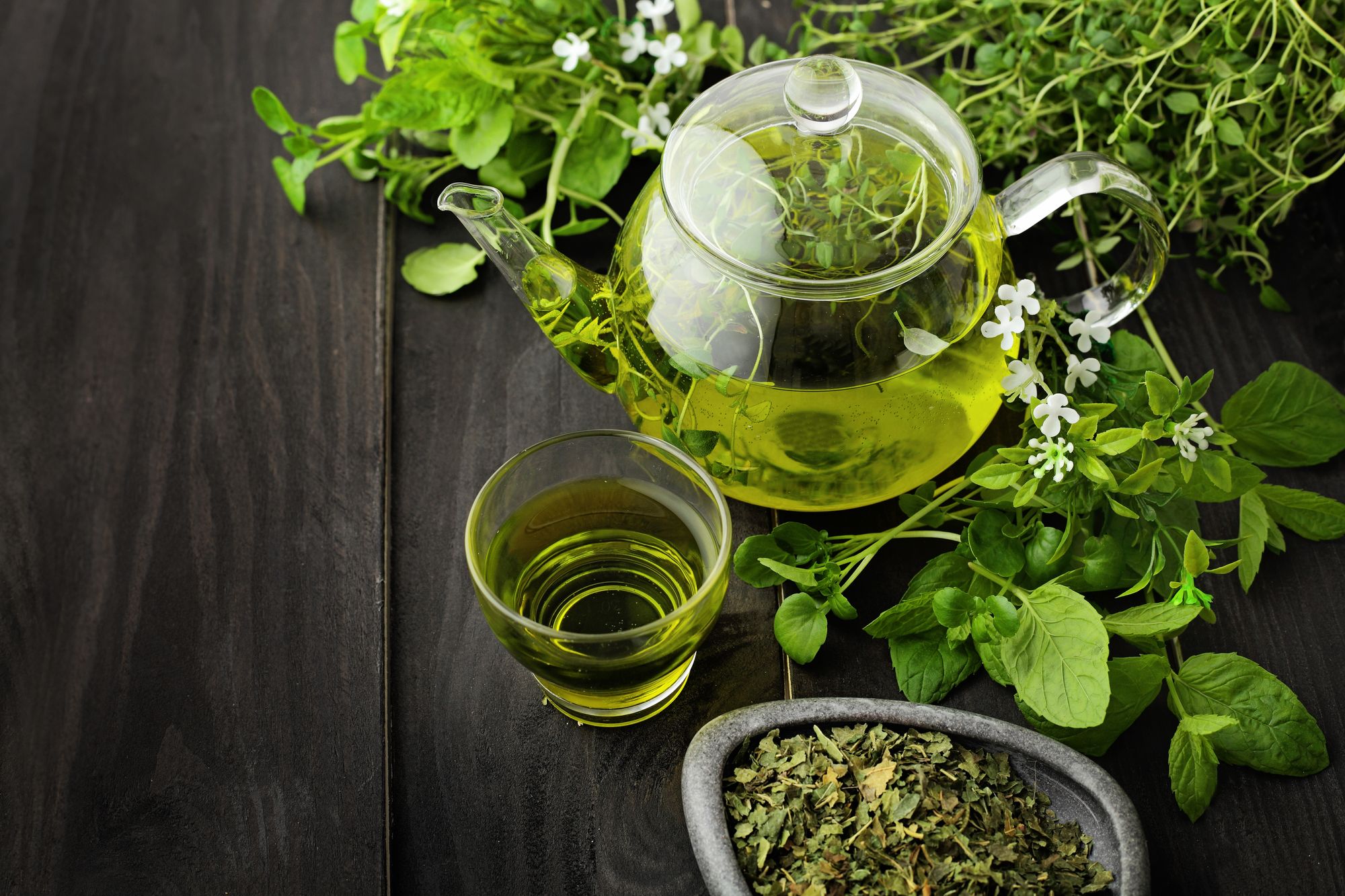
Research indicates that green tea can lower fasting blood sugar levels and decrease the risk of developing type 2 diabetes. It also enhances insulin sensitivity, allowing the body's insulin to more effectively regulate blood sugar levels. Green tea contributes to the protection of insulin-producing cells and the flavonoids in tea assist in neutralizing harmful free radicals and reducing inflammation.
These properties of green tea are advantageous not only in preventing type 2 diabetes but also in minimizing diabetes-related complications, such as diabetic retinopathy, as highlighted in a review article in the journal Antioxidants.
5) Green Tea Increases Your Intake of Flavonoids
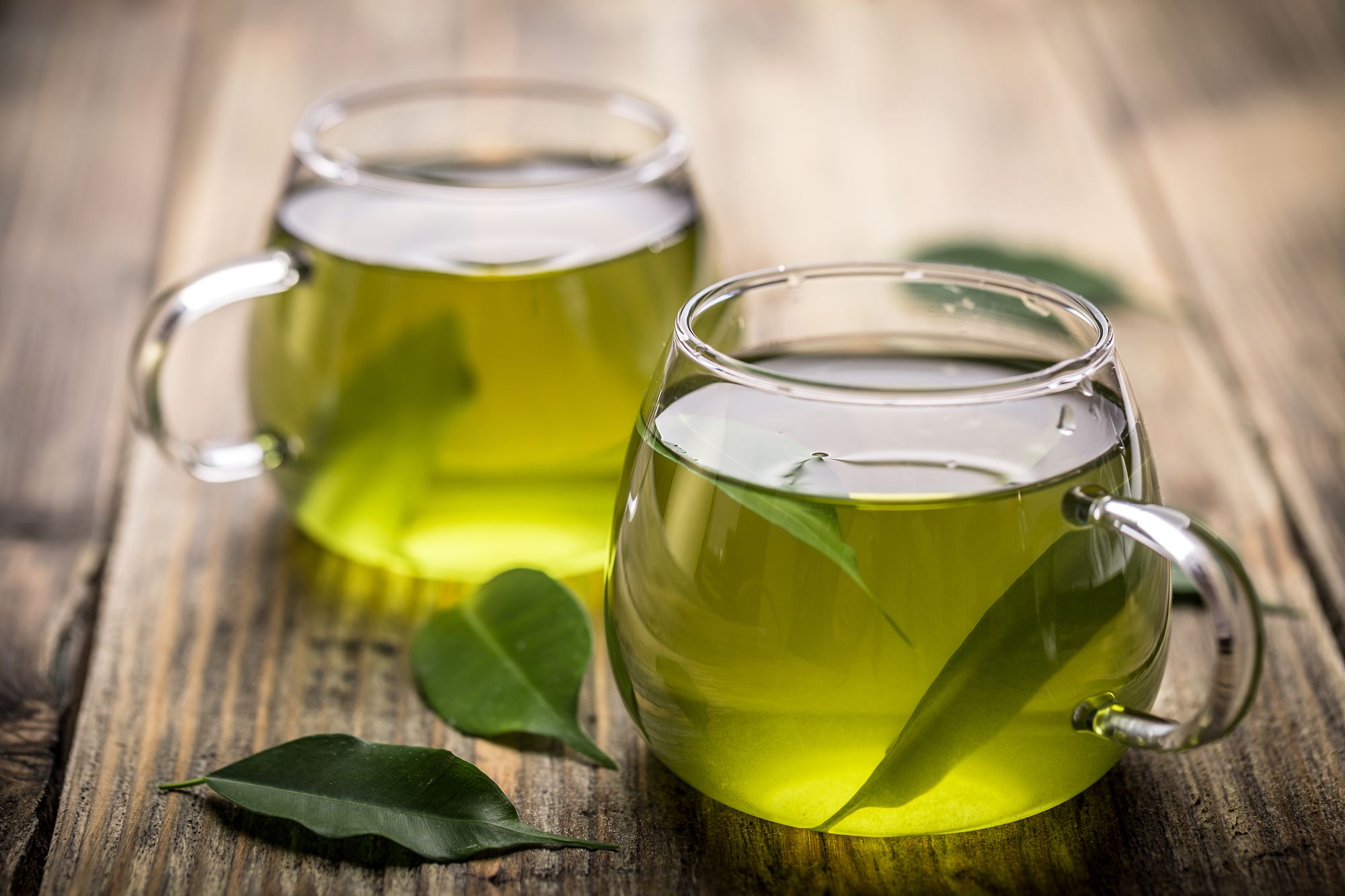
The health benefits of green, black, and oolong tea are often attributed to the flavonoids found in tea leaves. A study published in the journal Advances in Nutrition showed that regular intake of flavonoids from tea is linked to a lower risk of death from heart disease and other causes.
Joy Dubost, PhD, RD, Head of Nutrition & Health at Lipton, explains that flavonoids, natural compounds in tea, are associated with heart health. She suggests that consuming 200-500 milligrams of flavonoids daily, equivalent to 2-3 cups of tea, can support heart health as part of a diet that aligns with the Dietary Guidelines for Americans.
6) Antioxidants Will be Enhanced in Your Diet

Green tea, being non-fermented, contains a higher concentration of beneficial catechins compared to black or oolong tea, as noted in a review paper in the Journal of the American College of Nutrition.
Catechins, a type of flavonoid, are found abundantly in the Camellia sinensis plant's leaves. The four main catechins in tea are epicatechin (EC), epicatechin-3-gallate (ECG), epigallocatechin (EGC), and epigallocatechin-3-gallate (EGCG). Among these, EGCG and EGC are most prevalent in green tea and have been the focus of numerous studies.
These antioxidant catechins are also found in other healthful plant-based foods, such as apples, berries, and cacao.
7) Green Tea Enhances Alertness While Also Promoting Calmness

Green tea offers a gentler alternative to the caffeine boost from coffee, providing energy without the jitteriness. Sarah Koszyk, MA, RDN, co-founder of MIJA and author of 365 Snacks for Every Day of the Year, explains, "Green tea contains L-theanine, an amino acid that promotes calm focus. It works alongside caffeine in green tea to deliver a gradual release, avoiding the withdrawal symptoms or the spikes and crashes often associated with coffee's caffeine."
Green tea leads to a more soothing experience with less dependence than coffee. Koszyk also notes that L-theanine can alleviate anxiety by boosting dopamine production in the brain, thereby enhancing mental health and aiding in stress relief.
8) Green Tea is Good for Your Heart
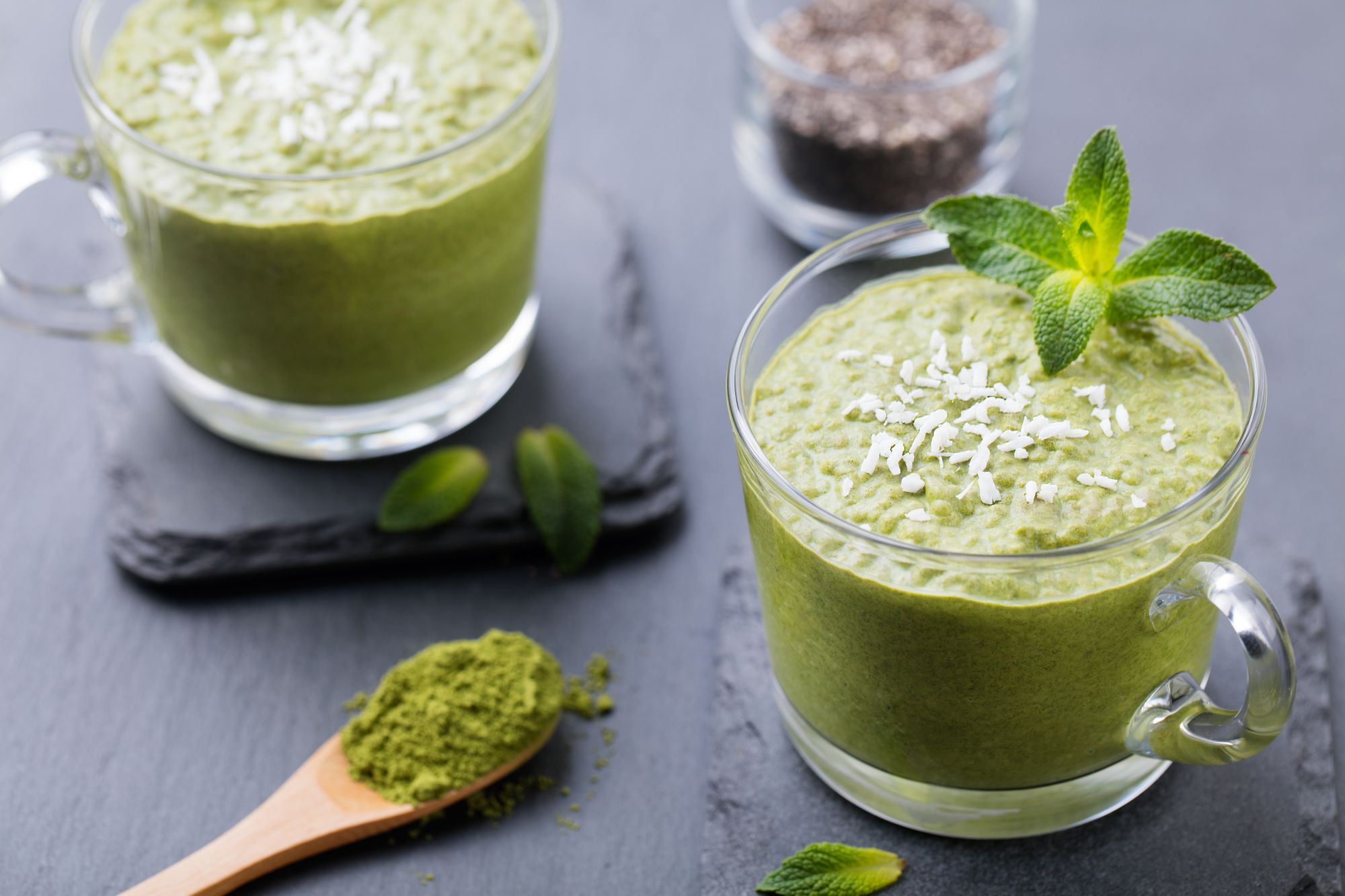
Green tea is highly beneficial for heart health, according to The Nutrition Twins, Lyssie Lakatos, RDN, and Tammy Lakatos Shames, RDN. They highlight that the polyphenolic catechins in green tea can enhance total and LDL (bad) cholesterol levels, addressing two major risk factors for heart disease.
A significant population-based study in JAMA involving over 40,000 Japanese adults over 11 years found that consuming more than five cups of green tea daily reduced the risk of dying from a heart attack or stroke by 26%, compared to those who drank less than one cup a day. Additionally, research in the European Journal of Preventive Cardiology indicated that drinking green tea three times a week or more significantly boosts overall heart health.
Choosing the Best Green Tea Brands
When planning to increase your green tea consumption, there are several factors to think about before your next purchase. Firstly, consider the importance of organic tea for you. Organic brands, often more costly, are typically transparent about their production process. Secondly, decide on the form you prefer loose leaf, tea bags, or matcha powder.
Here are some green tea brands we recommend:
1) Golde Pure Matcha
This matcha powder is of Ceremonial Grade, signifying its high quality and higher concentration of certain plant compounds. As per their website, Golde Matcha undergoes cold processing in Uji, Japan, to optimize its antioxidant and amino acid content. It is available for purchase as a 40-gram container, priced at $28 on their website or $29 on Amazon.
2) Yogi Pure Leaf Green Tea
Yogi Green Tea holds USDA Organic and Non-GMO certifications and is also Rainforest Alliance Certified, ensuring safety and sustainability for both workers and the environment. This tea offers great value for its quality, with a pack of six boxes, totaling 96 tea bags, available for approximately $25 on Amazon.
3) Rishi Sweet Matcha
This sweet matcha powder is an ideal choice for a quick, delightful treat. Comprising matcha green tea and cane sugar, it's simple to prepare – just mix with water or milk to create a delicious matcha latte reminiscent of one from a local cafe. It's one of my favorite powders to keep stocked.
4) Rishi Organic Sencha Green Tea
The Rishi Green Tea packets stand out as a personal favorite for their flavor. They offer a smooth taste and are among the least bitter green teas I've tried. Available on Amazon, you can purchase a single pack of 15 sachets for $8 or opt for a bulk purchase with a six-pack priced at $55.

